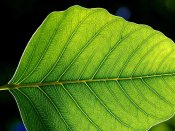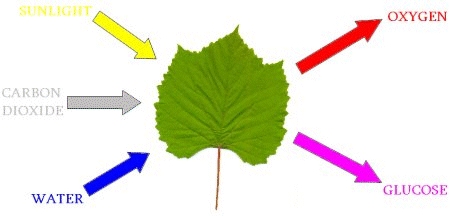Photosynthesis
The basis
The word photosynthesis comes from the Greek φωτο- (photo-), "light", and συνθεσις (synthesis), "placing with".

Photosynthesis is an incredible complex biological reaction that converts light energy into biological sugars, known as glucose.
It is a complex process occurring in plants, algae, as well as bacteria and is arguably the most important biochemical pathway, since nearly all life on Earth either directly or indirectly depends on it.
Chemical reaction
Its initial substrates are carbon dioxide (CO₂) and water (H₂O); the energy source is light; and the end-products are oxygen (O₂) and (energy-containing) carbohydrates, such as glucose (C6H12O6).
Photosynthesis is affected by its surroundings. The rate of photosynthesis is affected by the concentration of carbon dioxide in the air, the light intensity and the temperature.

Photosynthesis and corals
The zooxanthellae, the algae living together with the corals, are also photosynthesing organisms. Zooxanthellae need sunlight and CO2 to provide food (carbohydrates) for the polyps. Without this food, polyps cannot survive.
This explains why coral reefs are located in the photic (light-receiving) zone.
